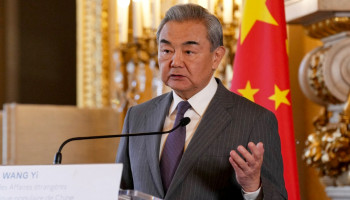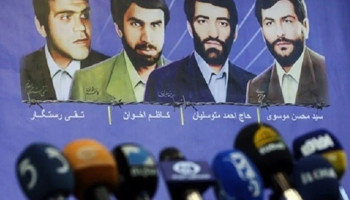Boston Consulting Group (BCG) is facing mounting scrutiny following a Financial Times investigation that revealed the firm’s involvement in a controversial and secretive effort to model the forced “relocation” of Palestinians from Gaza. The plan, developed in coordination with Israeli and US officials, also included BCG’s participation in a militarized humanitarian "aid initiative" now widely condemned by humanitarian agencies.
Though BCG has attempted to distance itself from the project, insiders told The Financial Times that the firm’s involvement spanned more than seven months and included over $4 million in contracted work.
The initiative, codenamed “Aurora”, featured detailed cost estimates for relocating hundreds of thousands of Palestinians and laid out a blueprint for a postwar economic restructuring of Gaza. Human rights organizations have warned that the project’s core proposals may violate international law and amount to a blueprint for ethnic cleansing.
Secret financial models and 'voluntary' displacement
According to the FT report, BCG consultants, including senior staff from the firm’s Washington defense and security division, developed a financial model projecting that over 500,000 Palestinians could be offered “relocation packages” valued at $9,000 each, totaling $5 billion. The relocation scenario was framed as voluntary, with additional incentives such as subsidized housing and food assistance.
However, BCG now claims the exercise was conducted without executive approval and in direct violation of internal directives. “The lead partner was categorically told no, and he violated this directive. We disavow this work,” the company stated, confirming that it has terminated the two partners responsible.
BCG initially joined the project on a pro bono basis in October 2024, helping to establish the Gaza Humanitarian Foundation (GHF), an Israeli- and US-supported initiative aimed at distributing aid in Gaza. The project was also backed by Safe Reach Solutions (SRS), a private military contractor founded by former CIA officer Phil Reilly.
Aid centers under the GHF banner, guarded by Israeli forces and staffed with US contractors, have been the site of harrowing massacres. Since its launch in May, more than 400 Palestinians have reportedly been killed attempting to access food aid, according to the Health Ministry in Gaza. The United Nations has condemned the initiative as a “fig leaf” for military occupation, and major international NGOs have refused to cooperate with it.
US President Donald Trump reportedly committed $30 million in funding to the GHF, amid broader speculation that his administration supports long-term depopulation of Gaza. Trump has previously referred to Gaza as the potential “Riviera of the Middle East,” a remark critics widely interpreted as endorsing ethnic cleansing.
Internal backlash, fallout at BCG
The financial modeling of mass displacement appears to have triggered an internal crisis at BCG. When staff became aware of the full scope of the project in late May, concerns were raised over ethical violations and reputational risk.
Documents obtained by the FT show that the project, initially framed as charitable, transitioned into a paid contract with fees covered by McNally Capital, a private equity firm that owns SRS’ parent company, Orbis.
Two senior BCG consultants, Matt Schlueter and Ryan Ordway, both US military veterans, led the Aurora project and maintained ties with the Israeli think tank Tachlith Institute. Internal reports flagged both the scope and intensity of the work, with consultants in BCG’s Tel Aviv office logging over 70-hour weeks, triggering a “Red Zone” warning, a corporate signal for ethical risk and overextension.
Despite the project’s growing notoriety, BCG continued advising SRS on procurement, logistics, and direct food delivery after NGOs pulled out. One BCG employee who questioned SRS’s capacity to manage food aid logistics was removed from the project, according to FT sources.
Collapse of the project
The situation came to a head following GHF’s public launch in May, which coincided with its approval by the Israeli cabinet. On May 25, BCG’s leadership ordered an immediate shutdown of the project and began withdrawing its consultants. That same day, GHF CEO Jake Wood resigned, citing a breakdown in humanitarian neutrality.
On May 28, BCG global leadership confronted Schlueter and Ordway at a partner meeting in Vienna. Days later, both were placed on administrative leave and asked to resign. On June 4, BCG brought in law firm WilmerHale to conduct an independent investigation into what CEO Christoph Schweizer called “serious process failures.”
Source:Websites







